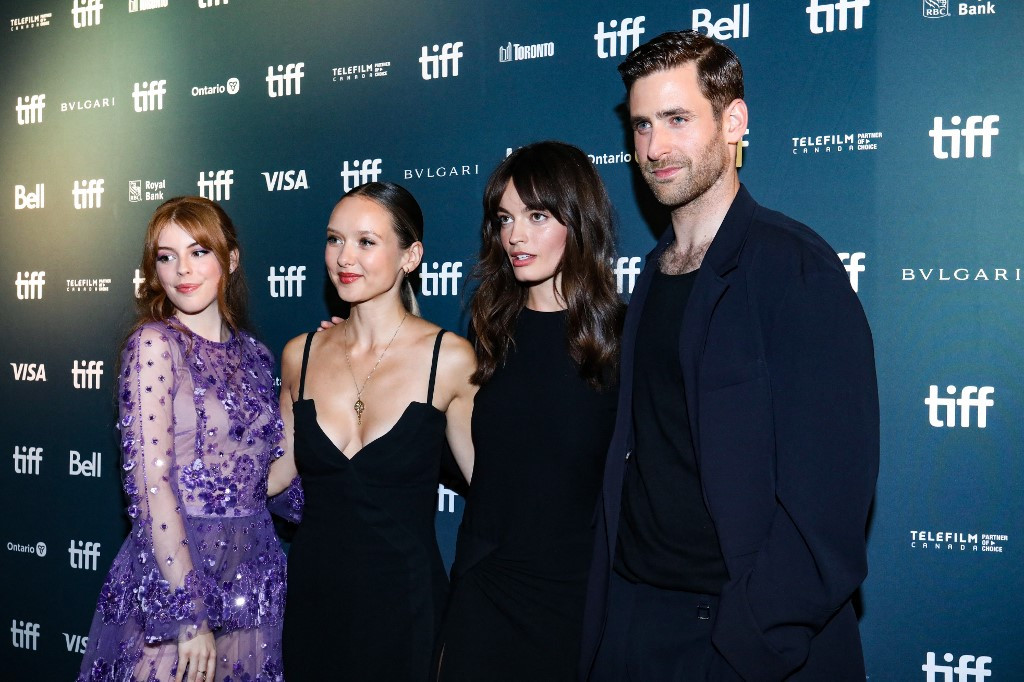Popular Reads
Top Results
Can't find what you're looking for?
View all search resultsPopular Reads
Top Results
Can't find what you're looking for?
View all search resultsBrontë biopic ‘Emily’ delves into imagined author’s darkness
Was reclusive 19th-century author Emily Brontë inspired to write Wuthering Heights after experimenting with opium, tattoos and a steamy affair with the local clergyman? Actress Emma Mackey doesn't think so—but she portrays Brontë doing all those things and more in Emily.
Change text size
Gift Premium Articles
to Anyone
Was reclusive 19th-century author Emily Brontë inspired to write Wuthering Heights after experimenting with opium, tattoos and a steamy affair with the local clergyman?
Actress Emma Mackey doesn't think so—but she portrays Brontë doing all those things and more in Emily, a new drama which deliberately ignores the trappings and conventions of the traditional period biopic.
"No. I don't. But also, I don't care!" the star, best known for Netflix hit Sex Education, told AFP.
"It's not a documentary—I had to wrap my head around just letting go of all the biographical elements and really hold on to the fact that this is just a story" that writer-director Frances O'Connor "wanted me to tell," she said.
The question of how a shy Victorian woman who spent most of her short life on the remote Yorkshire moors penned a dark, passionate Gothic novel that shocked its contemporary readers has long vexed academics and fans.
Emily, released on Friday by Warner Bros in the United Kingdom, offers a non-literal answer, allowing elements of Wuthering Heights to "seep in and feed that real world" of its author, said Mackey.
Its heroine is led astray by her rebellious, troubled brother Branwell— a prototype for her novel's brooding Heathcliff—and romps with her father's curate William Weightman, who has parallels to the book's gentlemanly Edgar.
According to Mackey, in reality Emily and her sisters Charlotte and Anne probably drew their complex creative ideas from the extensive library of books, including Gothic literature, that they had access to growing up.
But, she notes, there were macabre elements in the Brontë family's real world too.
"Emily Brontë’s actual room looks onto a graveyard in Haworth [in Yorkshire] [...] I think that innate morbidity was 100 percent there," she said.
The sisters would have seen people in the nearby mill town "dying of TB [tuberculosis] from the water that is infected by your own graveyard," Mackey added.
"Death was everywhere. They saw kids dying. It was very tangible to them."
'What's behind the door'
The movie, which arrives in United States theaters early next year, was a hit with critics following its world premiere at the Toronto film festival, where Mackey sat down with AFP last month.
The Guardian dubbed it "beautifully acted, lovingly shot, fervently and speculatively imagined”.
Variety praised Mackey's "psychologically vivid Emily,” although it noted that "Brontë purists may quibble with the futzing of the timeline”.
Mackey, who has a reduced role in the upcoming fourth season of Netflix's raunchy teen comedy series Sex Education and is taking on more big-screen projects, agreed that "people are going to be probably very angry with this film" because they "care so much about" Brontë.
But the chance to work with female directors like O'Connor—and Greta Gerwig in the upcoming Barbie, starring Ryan Gosling and Margot Robbie—has "been so interesting," she said.
"Seeing how they interact with people on set, how sets feel when they're led by women is really interesting—there's this whole new energy that happens."
While she does not view Emily Brontë—who wrote under a male pseudonym—as a feminist per se, Mackey sees the movie as "a thank you for the impact that she's had on people and women, and readers across the world, still today.”
"There's something fascinating about a recluse and someone who is shrouded in mystery," said Mackey.
"It's like having a 'Do Not Enter' sign on your door. You want to enter and you want to see what's behind the door."











